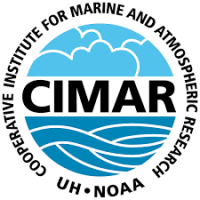Partners
Partnerships are absolutely essential to PMEL’s success and also benefit the larger research community. The laboratory would not be able to function without numerous partnerships at many different levels. Partners act as providers of resources and expertise not available within the laboratory, and range from those within NOAA to those across the globe in the international community. By sharing PMEL's expertise and resources with our partners, we also increase the productivity of our collaborators on mutually beneficial projects.
NOAA Partners
NOAA'ss Office of Oceanic and Atmospheric Research (OAR) mission is to "conduct research to understand and predict the Earth system; develop technology to improve NOAA science, service, and stewardship; and transition the results so they are useful to society". To improve NOAA science, service and stewardship, PMEL works closely with NOAA operational line offices. In some cases, these line offices provide funding support for specific research products that benefit that particular line office. In other cases, the collaborations are among scientific personnel with mutual interests in a topic of study.
NOAA OAR Partners
The NOAA Research network consists of 10 research laboratories, programs that conduct ocean exploration and observations, support research to improve weather forecasting and our understanding of ocean acidification, and enhance the use and conservation of coastal, marine and Great Lakes resources through the National Sea Grant Program. The primary components of the network that PMEL works with are:
- NOAA Research Laboratories
- National Sea Grant College Program
- NOAA Ocean Exploration
- NOAA Climate Program Office
- NOAA Weather Program Office
- NOAA Uncrewed Systems Research Transition Office
- NOAA Technology Partnerships Office
- NOAA Ocean Acidification Program
- NOAA Global Ocean Monitoring and Observing Program
Academic Partners
PMEL works very closely with many university partners. The strongest connection with U.S. universities is through NOAA's national network of Cooperative Institutes (CIs). Approximately one-half of the PMEL workforce is made up of CI employees. CIs are absolutely essential to the productivity and success of the laboratory's research programs. They foster important collaborations with university scientists, as well as provide NOAA with access to a broad range of university facilities and resources that would otherwise be unavailable. PMEL has scientists and technical staff with the following CI's:
- The Cooperative Institute for Climate, Ocean and Ecosystems Studies (CICOES) hosted at the University of Washington
- The Cooperative Institute for Marine Ecosystem and Resources Studies (CIMERS) hosted at Oregon State University
- The Cooperative Institute for Marine and Atmospheric Research (CIMAR) hosted at the University of Hawai'i
National and International Partners
PMEL also relies heavily on partnerships with other government agencies, private industry, non-governmental organizations, U.S. State Agencies, and international organizations and governments to increase its scientific productivity.





